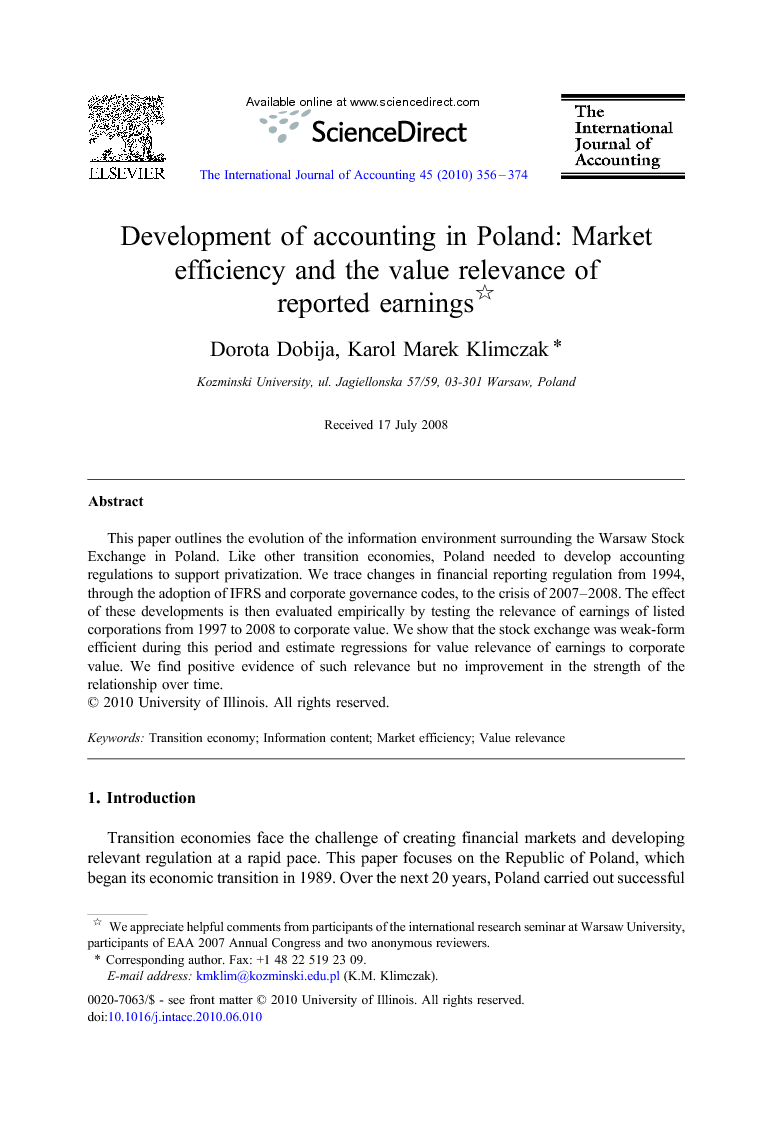ترجمه فارسی عنوان مقاله
توسعه حسابداری در لهستان: بازده بازار و نسبت ارزش درآمدهای گزارش شده
عنوان انگلیسی
Development of accounting in Poland: Market efficiency and the value relevance of reported earnings
| کد مقاله | سال انتشار | تعداد صفحات مقاله انگلیسی |
|---|---|---|
| 4178 | 2010 | 19 صفحه PDF |
منبع

Publisher : Elsevier - Science Direct (الزویر - ساینس دایرکت)
Journal : The International Journal of Accounting, Volume 45, Issue 3, September 2010, Pages 356–374
ترجمه کلمات کلیدی
اقتصاد گذار - محتوای اطلاعات - بازده بازار - نسبت ارزش -
کلمات کلیدی انگلیسی
Transition economy,
Information content,
Market efficiency,
Value relevance,

